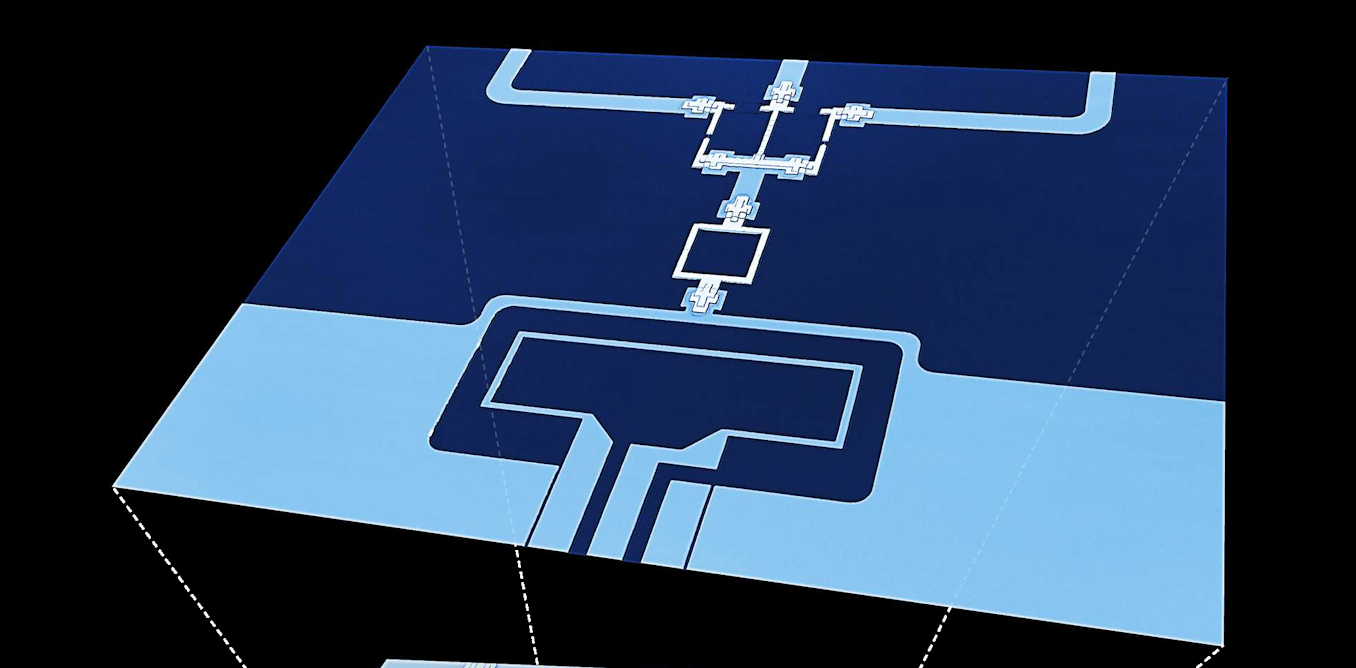Science
Nobel Prize in Physics Honors Breakthroughs in Quantum Technology

The 2025 Nobel Prize in Physics has been awarded to three scientists for their pivotal research in ultracold electronics, which has significantly advanced the field of quantum technology. The laureates—John Martinis, Michel Devoret, and John Clarke—demonstrated that quantum effects can persist in large electrical circuits, laying the groundwork for practical applications in quantum computing.
Quantum mechanics, the study of the behaviors of microscopic particles, has the potential to revolutionize areas such as chemistry and cryptography. Traditional computers struggle with complex problems that require vast computational power, but quantum systems can theoretically solve these more efficiently. As a result, the development of practical quantum technologies is crucial for harnessing this potential.
Groundbreaking Discoveries in Superconductivity
In the mid-1980s, Martinis, Devoret, and Clarke conducted landmark research that explored the quantum behavior of superconducting circuits. Their experiments utilized circuits made from niobium and lead, which, when cooled to nearly absolute zero, exhibit superconductivity—a state where materials can carry current without generating heat.
Their findings revealed that these superconducting circuits operate under the principles of quantum mechanics. Notably, they showed that these circuits have quantized energy levels and can exist in superpositions of multiple states. This means that a system can have discrete energy values, much like how colors blend in a pixel of an image.
The ability to describe superconducting circuits as single quantum particles is a significant advancement. This simplification has made superconducting circuits a powerful tool for various applications, including fundamental quantum physics research, simulating complex physical systems, and developing ultraprecise sensors.
Applications and Future Prospects
Today, superconducting circuits are at the forefront of quantum computing technology. These circuits allow multiple quantum systems to interact and become entangled, enabling them to function as a singular system. This combination of properties—quantization, superposition, and entanglement—is what gives quantum computers their extraordinary capabilities.
In quantum computing, qubits serve as the fundamental units of information. They must maintain coherence, meaning they should remain in a specific state without interference. Researchers must also ensure that qubits are controllable and scalable, allowing for the creation of large quantum systems.
While various technologies show promise, such as trapped ions and photons manipulated by optical circuits, superconducting circuits offer significant advantages. Their flexibility allows researchers to design circuits that can achieve desired qubit behaviors with predictable results. This makes them easier to manage compared to smaller, more complex quantum systems.
The impact of this research extends beyond academic circles. Companies and government laboratories are now utilizing these breakthroughs to engineer large-scale quantum processors for practical applications.
Martinis, who previously led the Google quantum processor initiative, and Devoret, who contributes to ongoing Google efforts, continue to influence the field significantly. Clarke, now retired, has also focused much of his career on quantum circuits. Their work not only paved the way for current advancements but has also shaped the careers of many researchers in the quantum technology sector.
As the field of quantum computing evolves, the contributions of these Nobel laureates are likely to inspire new generations of scientists to push the boundaries of what is possible. The recognition they have received is a testament to the lasting impact of their research on technology and science.
Eli Levenson-Falk, a physicist studying superconducting circuits, highlights the importance of this research in his own work. He emphasizes that the foundational discoveries made by Martinis, Devoret, and Clarke have influenced countless others in the field.
In conclusion, the award of the Nobel Prize in Physics in 2025 not only honors past achievements but also signals a promising future for quantum technology, which continues to evolve and expand into new realms of possibility.
-

 World3 months ago
World3 months agoTest Your Knowledge: Take the Herald’s Afternoon Quiz Today
-

 Sports3 months ago
Sports3 months agoPM Faces Backlash from Fans During Netball Trophy Ceremony
-

 Lifestyle3 months ago
Lifestyle3 months agoDunedin Designers Win Top Award at Hokonui Fashion Event
-

 Sports3 months ago
Sports3 months agoLiam Lawson Launches New Era for Racing Bulls with Strong Start
-

 Lifestyle3 months ago
Lifestyle3 months agoDisney Fan Reveals Dress Code Tips for Park Visitors
-

 Health3 months ago
Health3 months agoWalking Faster Offers Major Health Benefits for Older Adults
-

 World3 months ago
World3 months agoCoalition Forms to Preserve Māori Wards in Hawke’s Bay
-

 Politics3 months ago
Politics3 months agoScots Rally with Humor and Music to Protest Trump’s Visit
-

 Top Stories3 months ago
Top Stories3 months agoUK and India Finalize Trade Deal to Boost Economic Ties
-

 World3 months ago
World3 months agoHuntly Begins Water Pipe Flushing to Resolve Brown Water Issue
-

 Entertainment3 months ago
Entertainment3 months agoExperience the Excitement of ‘Chief of War’ in Oʻahu
-

 Science3 months ago
Science3 months agoNew Interactive Map Reveals Wairarapa Valley’s Geological Secrets









